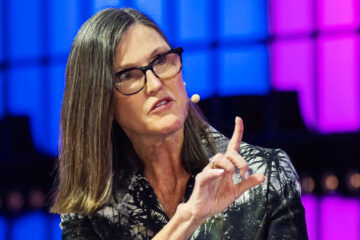Google restricts access to its services to Russian entities, but it’s not as vocal as Facebook on this conflict.
Keeping a low profile: this is how Google’s (GOOGL) – Get Alphabet Inc. Class A Report position can be summed up since the start of the Russian invasion of Ukraine on Feb. 24. And above all not to make waves.
It’s as if the internet giant is not one of the platforms millions of people around the world search to discover the geography of Ukraine or Russia. Place both countries on the world map and try to search for the latest information on this Russian war.
In Silicon Valley, its main rivals have been quite vocal in taking a position and making it known. This is the case of the great rival Facebook, now known as Meta Platforms (FB) – Get Meta Platforms Inc. Class A Report, which has adopted an attitude of defiance vis-à-vis Russia. The social media giant has also paid the price since Facebook and Instagram are now banned in the country and Meta’s activities have been labelled “extremists” by Russian officials.
It has not escaped observers that Google, which has a power of penetration as equal to Facebook, has still not suffered the wrath of Moscow, which seeks at all costs to win the communication war against Kyiv.
Avoid Criticism
Unlike its rivals, Google, whose parent company is Alphabet, chose not to take a stand in this Russian invasion of Ukraine. One of the priorities of the group is to avoid being criticized.
Google has thus announced actions such as to cease selling online ads in Russia. Like Facebook and Twitter (TWTR) – Get Twitter, Inc. Report, the Mountain View, Calif.-based firm has restricted new content and payments around this war.
Google has thus blocked Russian state media RT and Sputnik in Europe. More recently, the Sundar Pichai-led group said the company will not help websites, apps and YouTube channels sell ads alongside content the company believes exploits, denies and condones the Russian-Ukrainian conflict.
Google has software that helps advertisers generate revenue. The group will ban the appearance of ads next to content inciting violence or denying the Russian invasion. Google also prohibits any ad trying to capitalize on this armed conflict.
The Russian telecommunications regulator has retaliated to block service aggregator Google News for ‘fake news’.
DIMITAR DILKOFF/AFP via Getty Images
Google is also involved on another front: limiting disinformation on its platforms with discretion.
$35 Million to Fund NGOs and Nonprofits
“We saw how many Ukrainians turned to Search to find up-to-date information, including where to find shelter or humanitarian aid, and relied on air raid alerts on their phones,” CEO Sundar Pichai wrote in a recent blog post. “To help, we’re also rolling out new features that enhance access to trusted information, including info panels in local languages and transparency labels for publisher content on YouTube.”
The CEO recognizes that misinformation “that is spreading about the realities and facts of the war in Ukraine” is one of the great challenges facing Google. To deal with it, the firm will invest $10 million in partnerships, including with think tanks and civil society organizations to conduct region-specific research into misinformation and disinformation, as well as cash grants to support fact-checking networks and nonprofits.
“Jigsaw, a unit within Google that builds technology to counter threats to open societies, will partner with local experts and academics to develop approaches to both directly counter disinformation and help people more easily identify disinformation,” Pichai announced.
Google is finally active on the humanitarian situation, which is a little less politicized than taking a position. In this respect, where the group is certain that there is no risk to its reputation or to its income, it and its employees have committed over $35 million in funding, according to the CEO.
Funds will go to organizations focused on people in Ukraine, like Nova Ukraine and Fight for Right, as well as nonprofits supporting refugees in bordering countries, such as The Polish Center for International Aid, Hungarian Interchurch Aid, Romanian Red Cross, and People in Need in Slovakia.
“We are grateful for the newly announced support and donation from Google today. Sundar Pichai’s commitment to fight misinformation is essential for Ukrainians to get accurate news, data and information at all times,” said Igor Markov, one of Nova Ukraine directors, in an email statement.


